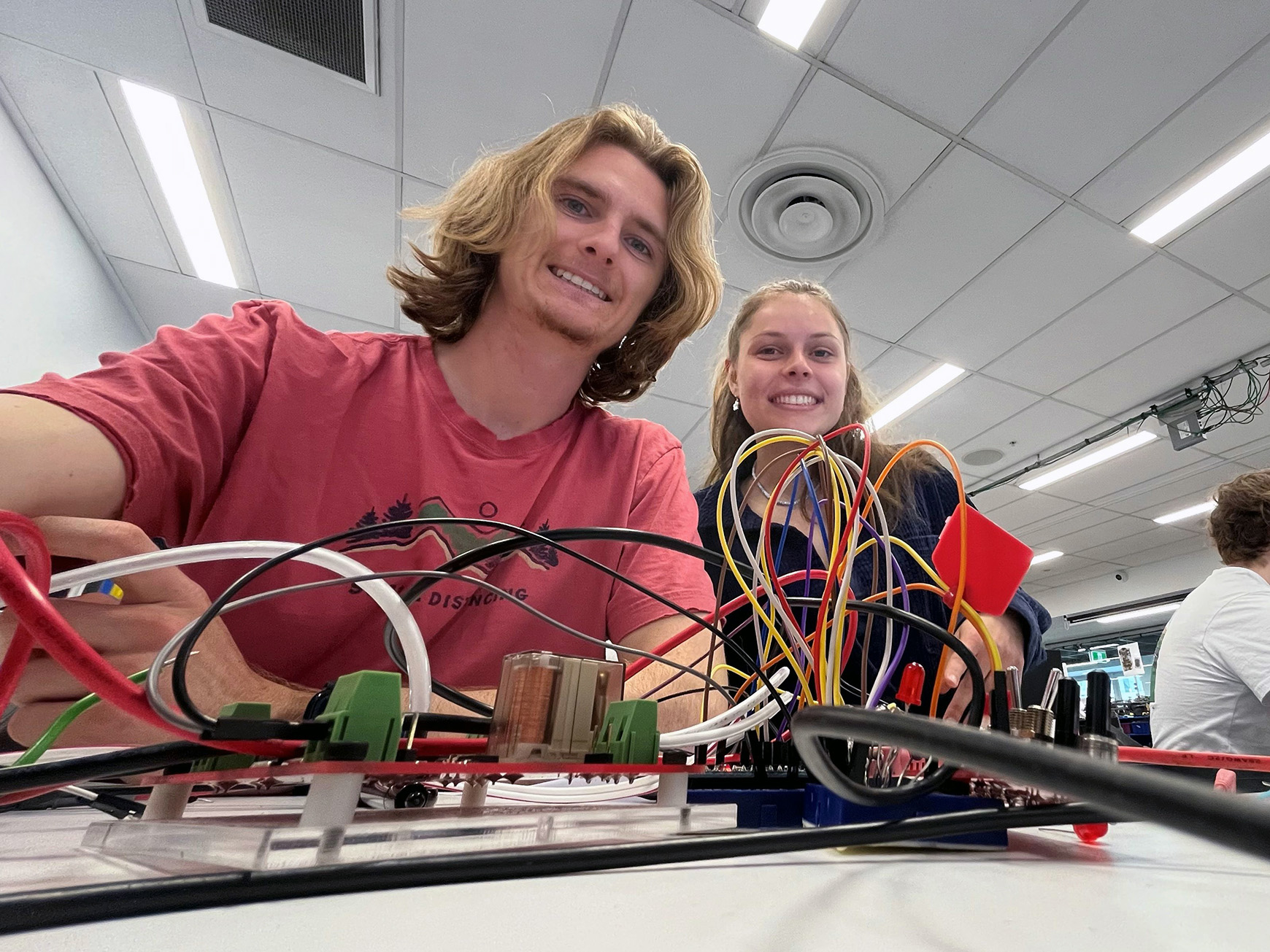Six Benefits of Studying Abroad


Introduction
The benefits of studying abroad go far beyond classroom learning and foreign adventure. Study abroad is an opportunity for personal growth, career advancement, and cultural immersion that will impact you in ways you never imagined. Adapting to a new environment naturally fosters independence, resilience, and global awareness—skills that will benefit you throughout your life.
This blog explores six benefits of studying abroad and how they contribute to long-term growth and success.
1. Increasing career opportunities

One of the most valuable benefits of studying abroad is the ability to develop skills that enhance future careers. You’ll strengthen your communication and critical thinking through adapting to a new culture in a university setting.
Additionally, studying abroad provides you with a global perspective, giving you an additional competitive edge in job markets. Employers value professionals who can navigate through diverse environments, demonstrate cultural awareness, and work internationally. The skills gained through a study abroad experience don’t just add lines to your resume; they stay with you for life and follow you throughout your career.
If you’re looking for ways to maximize the career benefits of studying abroad, consider exploring IFSA’s Career Accelerator. This program is designed to help you connect your study abroad experience with real-world career opportunities, ensuring you gain valuable professional skills that will make a lasting impact.
To learn more about the different ways studying abroad can benefit careers, read 9 Career Benefits of Studying Abroad.
2. Building cross-cultural understandings
Another major benefit of studying abroad is building cross-cultural understanding through cultural enrichment. Cultural enrichment is the process of experiencing and learning about a culture that is different than one’s own. When you choose to study abroad, your journey begins with the understanding that you will be immersing yourself in a new environment that is much different from your home country.
“I gained a new perspective on the world and a ton of new places I have been. It was absolutely worthwhile”
Nathan F of Middlebury College participating in IFSA’s King’s College London Program, in the UK
The act of uprooting for a semester and living in a different country will encourage you to adapt to a culture that is different than your own. Being exposed to new traditions and customs such as honoring Día de Los Muertos in México’ or participating in traditional Pachamanca cooking in Perú, can give you a new perspective. The deeper you can immerse yourself in their new environment, the deeper your understanding of varying societal structures and cultural values will become.

3. Obtaining unique academic advantages
Studying abroad gives you the unique opportunity to explore your academic discipline in a completely new environment. This exposure encourages fresh ideas, challenges perspectives, and fosters new ways of thinking. Learning subjects in a different academic setting or language will encourage you to approach problems in new ways. . This can ultimately broaden and strengthen your understanding of your chosen field of study.
“I learned a lot more within my specific sub-field of my major that I haven’t had access to at Middlebury College because of its small size.”
Hope J, of Middlebury College participating in the IFSA: St. Andrews Program in the UK
Similarly, by studying abroad you will find that different institutions have varying curriculums and professors that might teach differently than what you are accustomed to in your home country. This can challenge you to step outside of your comfort zone and build skills and knowledge that you might otherwise not have access to.
4. Improving problem-solving skills
Living in, and attending school in a different country encourages you to adapt; from the languages spoken to your living environment to academic expectations. These experiences not only help to boost confidence but also strengthen your ability to handle uncertainty, make informed decisions, and address challenges head-on.
“Living on my own in a foreign city was a huge growth experience, and I loved being able to travel around the country for hikes and nature experiences. School was challenging but I loved socializing and exploring the city when I had free time.”
Britt L of Middlebury College participating in IFSA’s Victoria University of Wellington program, in New Zealand.
5. Driving personal growth and development
Studying abroad in a completely new environment challenges you to step outside your comfort zone. When you need to address challenges and solve problems in a different country, you’ll find that’s when you grow the most.
“I learned so much about traveling and spending time alone! I now love both, when, this previously was an issue for me.”
Middlebury College student participating in IFSA’s University of Sydney program in Australia.
Throughout your study abroad experience, you will naturally build your confidence, independence, and discover more about yourself–something you might not have had the opportunity to do without your study abroad experience.
To learn more about how studying abroad impacts students like you, read our guide, The Impact of Study Abroad on Student’s Personal Growth.
6. Encouraging health and overall wellness
Studying abroad can have lasting health and wellness benefits. You may find your level of physical activity naturally increases with the amount of time you’ll spend walking and exploring your new environment. Being immersed in a new culture and environment also encourages you to try new foods, which can improve your diet as well as broaden your global cuisine.
The health benefits of studying abroad aren’t just physical. Experiencing new cultures, building relationships with other students, and embracing unfamiliar situations can provide significant mental health boosts. In fact, research from Inside Higher Ed highlights the growing importance of student well-being and engagement in academic experiences, reinforcing how opportunities like studying abroad can contribute to a well-rounded and fulfilling college experience.
Start your journey
When you study abroad, you are placed in entirely unfamiliar environments, and leave behind everything you have ever known—this is an exciting opportunity that can push you outside of your comfort zone and cause you to grow in more ways than you know. Navigate to IFSA’s program search to find the best-fit study abroad program for you.
More to explore: